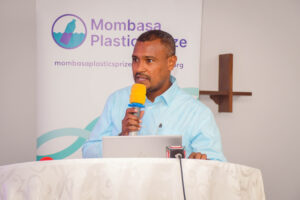AFIDEP urges government to invest in Human Capital for a prosperous Kenya

A Senior Policy Research Analyst at the African Institute for Development Policy (AFIDEP) has called on the Kenya government to invest in human capital by skilling and reskilling the youth if the continent is to harness her demographic dividend.
Speaking in Nairobi during a panel discussion on the State of Kenya Population Report and the State of the World Population Report 2023, Dr Bernard Onyango said planning and investing in education and skills development in high school and at tertiary level will make a difference for the country.
“The continent’s growing youthful population may not yield the expected dividends if deliberate actions to develop their human capital is not taken serious,” he said.
Onyango said the population growth rate in the country has been coming down because couples have opted for smaller families. On average, today, families are having 3 to 4 children, contrary to the situation as it was in 1970s when families had as high as 6 to 8 children.
“Today, the proportion of people under 15 years old has come down from 43 per cent to about 39 per cent over the last 10 years. This means that we are reducing dependency burden. However, for us to maximize the dividend, we have to make the right investments in human capital development and make sure that more youths are in employment,” added Onyango.
Onyango said there are a lot of people in the working ages who still stay with their parents up to the age of 30 years. “This is still a burden that has to be reduced. In developed countries when people are 20 years old they are independent,” added Onyango.
He emphasized on investment on the education, vocational training and the youth.
” Kenya for example, is working on serious reforms in the education sector. The country’s Competency Based Curriculum (CBC) and its investments in Technical and Vocational Education Training (TVET) will without doubt skill the and enable them earn a living,” added Onyango.
However Onyango reiterated that there is still a challenge around the quality of education offered in the country and called for urgent need to address the challenge.
“We have to keep in mind the demographic transition across the country. There are still some Counties that are where we were in the 1970s, so the progress is uneven and we have to pay attention to that,” added Onyango.
According to the State of the World Report which is published annually The United Nations Population Fund (UNFPA), Kenya is projected to have 70 million people in 2045 and 80 million by 2050. According to Onyango, the country needs to begin planning for this huge jump in numbers.







